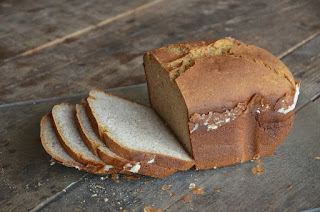In recent
years gluten free eating has become very popular and lots of pseudo-conditions
are attributed to gluten. Although NCGS isn’t what we would call a pseudo-condition
it has been proposed that it might be part of IBS and the culprit isn’t gluten after all.
Fructans
are chains of varying length of the sugar fructose, they are universally
malabsorbed because we do not have the required enzyme in our body to break the
chains into smaller fructose units. This leads to the fructans passing to the
large intestine where they are fermented by the resident bacteria. This fermentation
and the resulting gas production is usually well tolerated by non-IBS people but
people with IBS tend to be highly sensitive to the fermentation of fructans and
experience painful bloating and bowel distention. Foods that contain fructans
are vegetables such as onion and garlic and of course wheat.
Monash University
state that there is a lack of evidence that has managed to separate the effects
of gluten from fructans so it is unclear which food component they are reacting
to. Therefore, they do not recognise NCGS as a condition in itself and propose
that people who report problems with gluten may in fact be IBS sufferers
reacting to the fructans in wheat (2).
Now, this
all sounds well and good, people can now relax and realise they weren’t
sensitive to gluten after all. However, the problem lies in the practicality of
it all. Finding a food that contains gluten but no fructans is virtually
impossible, the only one we have found so far is sourdough bread or “masa madre”
as it’s known here in Spain. During the fermentation process of sourdough
bread, microorganisms such as Lactobacilli feed on the fructans and reduce
their content in the finished product. The end result is that people who
previously thought they were gluten-sensitive could enjoy sourdough bread,
providing coeliac disease has been correctly excluded.
In conclusion,
it appears that there is a lack of strong evidence to declare that NCGS is a
condition in itself and people who report symptoms may be in fact IBS sufferers
who are particularly sensitive to fructans. Aside from wheat, people who
suspect they may fall into this category also need to keep in mind, onion,
garlic, leeks and chickpeas.
For any
more information on IBS or the Low FODMAP diet please get in touch via info@gabinetederueda.es
References
1. Francavilla MD, et al. 2014, Clinical, Serologic and Histologic Features of Gluten Sensitivity in Children. The Journal of Paediatrics; 164: 463-7
2. https://www.monashfodmap.com/blog/the-truth-behind-non-celiac-gluten/

No hay comentarios:
Publicar un comentario